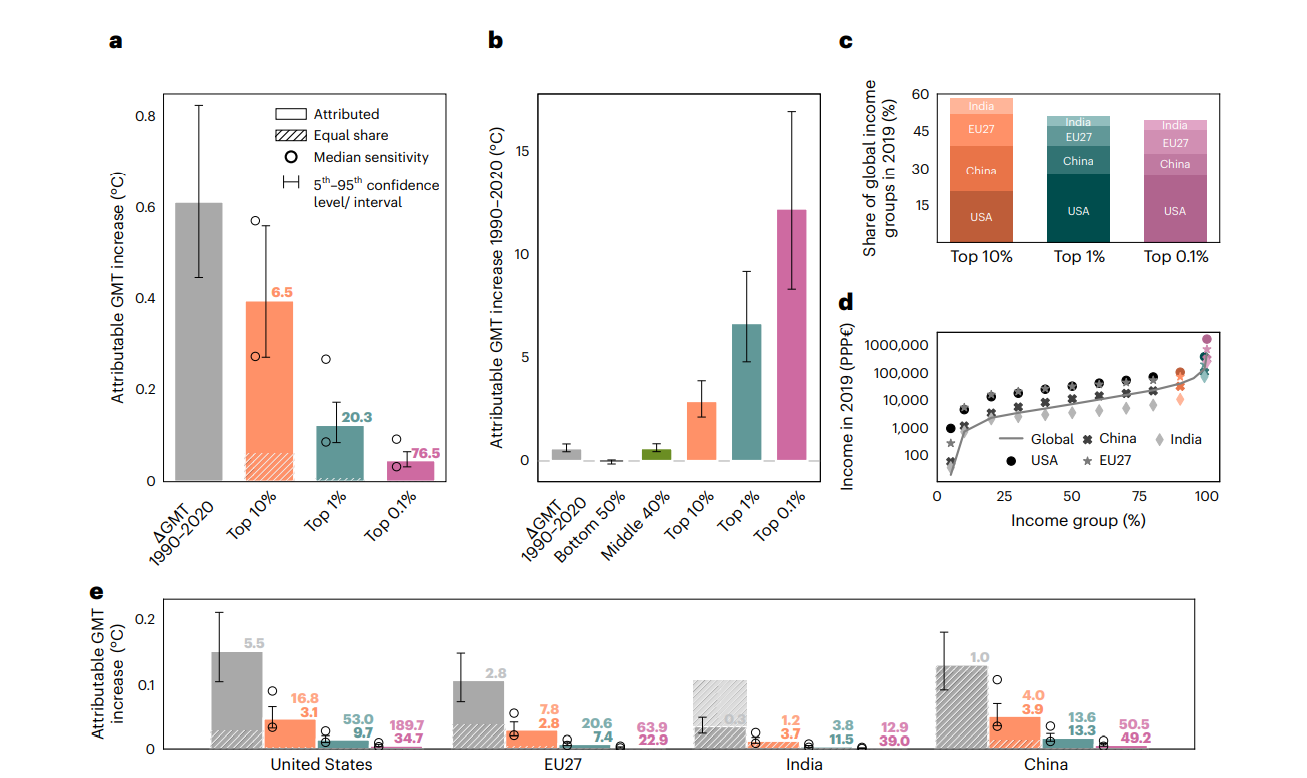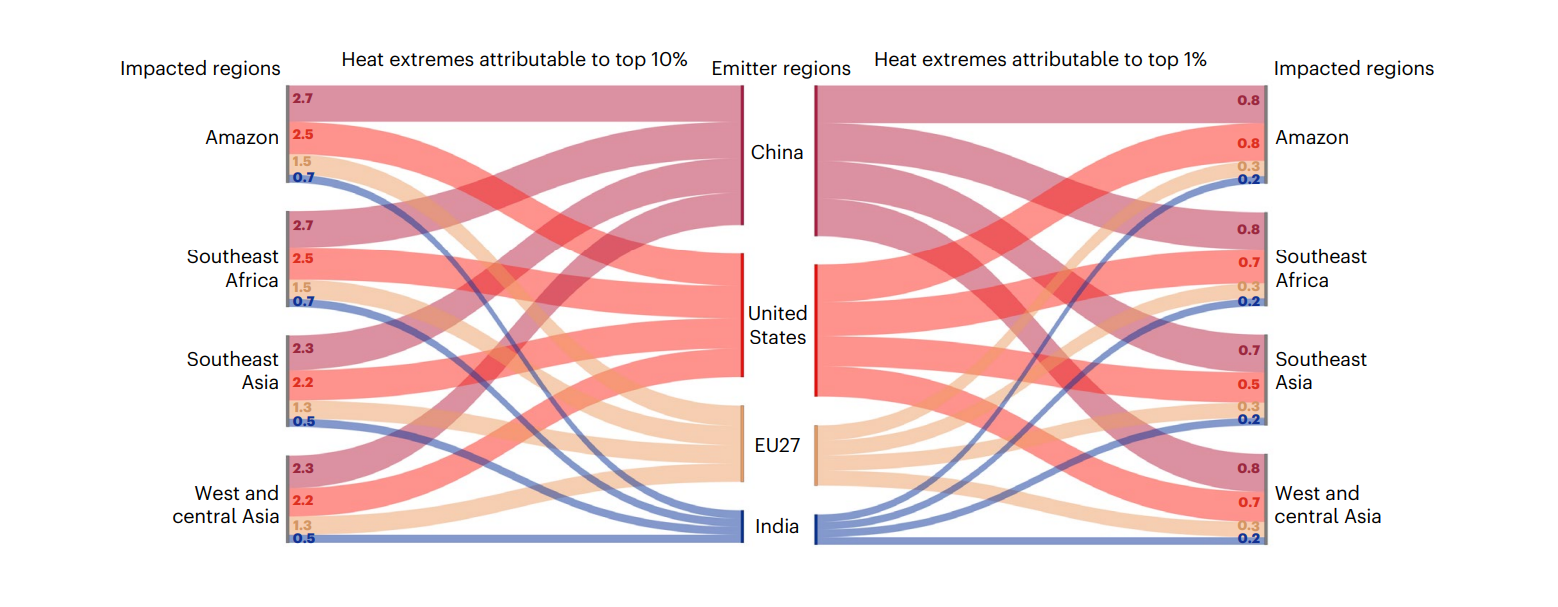Climate change is often discussed at the level of countries, industries, or decades. But what if we focus on individuals? A recent landmark study published in Nature Climate Change reveals that the wealthiest 10% of the global population is responsible for two-thirds of the planet’s warming since 1990. “We find that two-thirds (one-fifth) of warming is attributable to the wealthiest 10% (1%), meaning that individual contributions are 6.5 (20) times the average per capita contribution.” — Schöngart et al., 2025. Read the full study here.
Emissions Are Not Equal
The data is crystal clear: climate change is driven not only by industrial sectors, but also by wealth concentration and lifestyle choices.
- The wealthiest 1% contributed 20 times more to warming than the average person.
- The top 10% alone caused about 65% of the increase in global mean temperature (GMT) from 1990 to 2020.
Conversely, the poorest 50% of the world’s population were responsible for only 10% of emissions in 2019, yet they are among the most vulnerable to its impacts.
“If everyone had emitted like the bottom 50%, there would have been minimal additional warming since 1990.” — Schöngart et al., 2025
Escalating Climate Extremes
The impact of elite emissions goes beyond averages. They have amplified climate extremes:
- The top 10% were responsible for 7.3x more heatwave events.
- The top 1% caused 25.7x more extreme heat events than the global average.
- In the Amazon, emissions from these groups tripled the probability of severe droughts.
Injustice Without Borders
Despite contributing the least, vulnerable regions like South America, Southeast Asia, and Central Africa bear the brunt of the crisis. Meanwhile, high-income emitters like the US, China, and the EU face far fewer consequences.
“The contribution of the U.S. top 1% alone exceeds the entire country’s equal share.” — Nature Climate Change, 2025
What Can We Do at Ring Bell?
At Ring Bell, we believe tourism can be a force for good — if it is rooted in equity, sustainability, and responsibility. That’s why we:
- Allocate 3% of all revenues to environmental restoration.
- Promote eco-conscious hosts who adopt low-impact practices.
- Facilitate experiences that respect local communities and ecosystems.
Climate action is not just about reducing emissions — it’s about shifting power and responsibility.
Final Thoughts
Climate change is not an abstract force. It’s a story of choices, wealth, and consequences. The data shows us who’s accountable. The next step is designing just policies and equitable systems — from emissions taxes on luxury investments to reparative climate finance.
“Quantifying the link between wealth disparities and climate impacts can assist in the discourse on climate equity and justice.” — Schöngart et al., 2025
🔗 High-Income Groups Disproportionately Contribute to Climate Extremes (Nature Climate Change, 2025)









